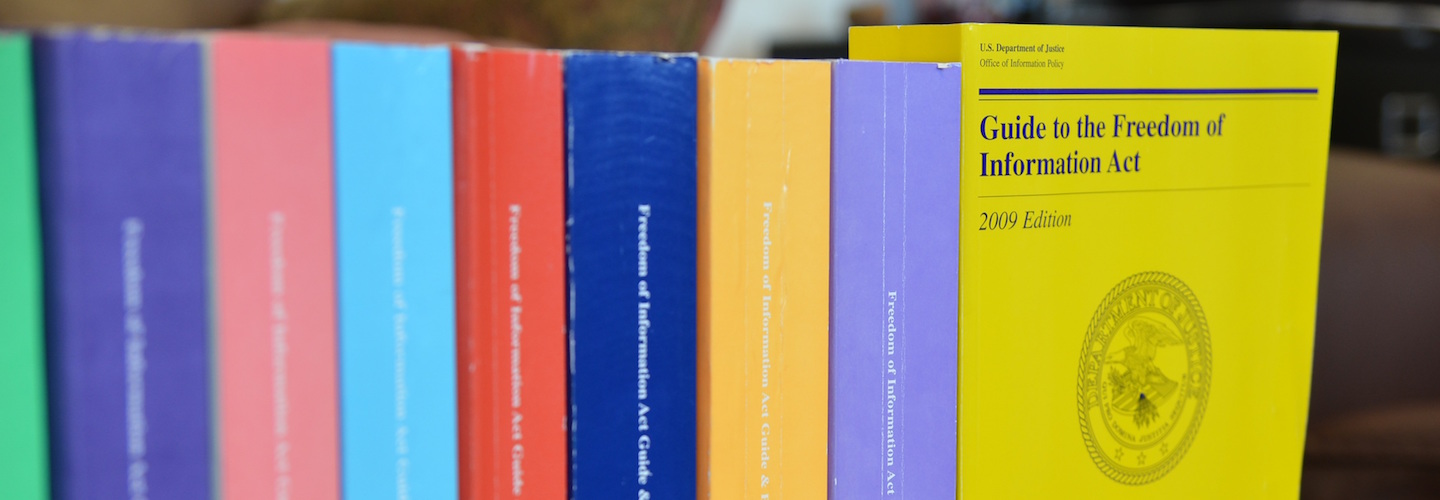
In a breakfast discussion at Harvard’s Shorenstein Center on Friday morning, two reporters and the former director of the Office of Government Information Services tried to clear up misunderstandings around FOIA, how to improve the records request process for both journalists and government workers (one obvious answer: invest more money), and how to make FOIA effective in a world of electronic communication.
Michael Morisy, cofounder of the FOIA site MuckRock, pointed to some moves in the right direction: The government consultancy 18F, for instance, has public Slack channels, and posts its work on GitHub, so whenever something is available to an 18F staffer, it’s also available to the general public. MuckRock has also been testing uncharted waters by making requests for things like Slack teams.There can be confusion about what exactly constitutes a “record,” when there are no obvious legacy (printed paper) documents.
“Under the direction of the archivist of the United States, it doesn’t matter what media you’re using to transmit information. If you’re using it to conduct government business, whether it’s text, whether it’s — it doesn’t matter,” Miriam Nisbet, former director of the OGIS, said. “But this is a new world for a lot of people who’ve been used to working on paper, who’ve been working with documents that were not born digital, and they haven’t been put into digital form.”
Erie Meyer, a Shorenstein fellow and a founding member of the United States Digital Service, pointed to new points of miscommunication that can come out of working digitally.
“I was FOIA’d by Michael [Morisy] for what I was doing on social media at the Consumer Financial Protection Bureau, and it totally freaked the agency out, because we hadn’t written down a digital strategy — that’s just how we did business. So we blocked him, and our digital people were like, ‘Can we just call him to explain?'” Meyer said. “MuckRock was testing the waters to see how we’d respond to different things. People asked for our digital strategy, because at the time we were blowing every other agency out of the water, but it’s because we were founded in 2011, which is newer than Pinterest. So we just used the Internet. It wasn’t a thing.”
“I have a love/hate relationship with FOIA,” Tracy Weber, a senior editor at ProPublica, said. “Part of it is because of the way it has evolved. In certain situations, it becomes too adversarial. You find that when you can find a way to make it less adversarial, you can actually do amazing things.” She highlighted ProPublica’s Dollars for Docs project, which tracks pharmaceutical company kickbacks for physicians.
ProPublica is also looking to raise money to hire a FOIA lawyer, according to Weber.
“Every one of the reporters is using public records all the time. Because agencies know we can’t sue, and because they know how expensive it is to take people to court, it’s allowed across the spectrum from the local to the federal level for agencies to blow by the deadline, to just say, well, you can appeal this. To do that takes a lawyer,” she said. “Increasingly I worry that it allows some agencies to decide, or to control how soon you can report something.”
Morisy added that he also worries about the disappearance of checks at the state and local level, even when there are improvements at the federal level.
“We see a lot of discussion about, ‘Hey, this program was reformed at the federal level, we did see some important legislation pass,’ but at the state level, local newsrooms have been decimated, local nonprofits that do this kind of work just aren’t there like they are at the federal level,” he said. “You don’t have nearly as many state-level equivalents of ProPublica. We’ve seen states get worse and worse, and state organizations get weaker and weaker over the years.”